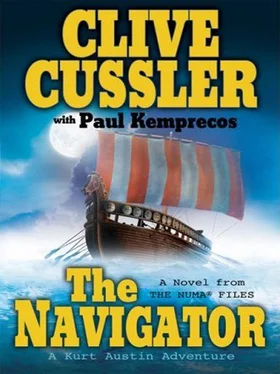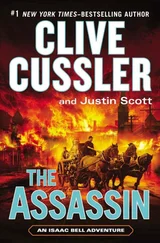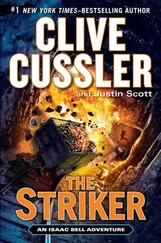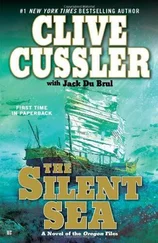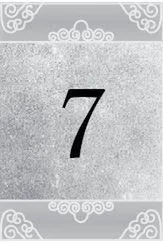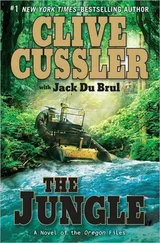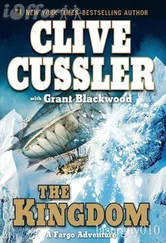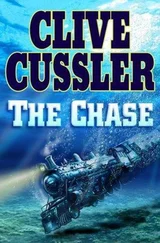The captain pictured the settlement as it was on his first visit. The plaza had bustled with activity. Hundreds of workers had occupied the flat-roofed dormitories and toiled in the warehouses.
The landing party methodically searched every building. Satisfied that the settlement was deserted, the captain led the way back to the river. He walked to the end of the pier and waved. As the crew hauled anchor and the rowers powered the ship toward the quay, the captain turned to the Scythian commander.
“Are your men ready for the important task that lies ahead?”
The question brought a snort from the Scythian. “My men are ready for any thing.”
The captain was unsurprised at the answer. He had spent many hours talking to Tarsa during the long voyage. The captain’s unquenchable thirst for knowledge about people of all races had led him to question Tarsa about his homeland and people, and he had come to like the tough old warrior in spite of his blue-and-red skin and his odd habits.
The ship tied up to the quay and the crew lowered a wide gangplank. Hooves pounded on the deck as two draft horses were led from their stable beneath the stern and down the ramp. The animals were nervous at being out in the open, but the Scythians quickly calmed them with soft words and handfuls of honey-soaked grain.
The captain organized a work party to take on freshwater and forage for food. Then he descended into the hold and stood next to a crate made out of sturdy Lebanese cedar. The container seemed to glow in the light streaming through the deck hatch. He called up to the crew to use great care in hoisting it from the hold.
Thick ropes were attached to the crate and affixed to the boom hook. The boom creaked under the heavy weight. The crate was lifted slowly from the hold and lowered onto the deck. The hook was detached, and oars were passed through holes in the sides and ends of the container, to be used as carrying poles. Men shouldered the poles and moved the crate down the ramp onto the quay.
The crate was lifted onto a low-slung cart that rested on sturdy, ironbound wooden wheels. The horses were harnessed to the cart. The marines slung their shields and bows over their shoulders, and, with spears in hand, formed protective flanks on each side. The captain and the Scythian commander took the lead. The procession surged forward with a clatter of weapons.
They marched through the abandoned settlement to a road that had been cut through the forest along the course of the river. Grass had grown up in the track, but the road still afforded rapid progress through the dense woods. The procession stopped each night to set up camp. On the morning of the third day, the marchers came to a valley between two low mountains.
The captain stopped the column and removed from his pack the same wooden box he had consulted on the ship. As the soldiers took a rest break and tended to the horses, he lifted the cover, poured in a small amount of water, and peered into the box. He glanced from the box to a scroll of vellum that he carried in a cloth sack. Then he pushed on with the unerring determination of a migratory bird.
The procession marched through the valley and eventually came to a field where remnants of round millstones were visible through the tall grass. The captain remembered the field when teams of sweating men had turned the stone wheels. Workers had poured baskets full of rocks into the mills, which ground the contents into powder. The powder had been carried over to fire pits. Bellows had stoked the blazes to white-hot intensity. Workers tilted clay crucibles and poured the glowing yellow molten contents into brick-shaped molds.
The expedition pushed on and came upon two stone idols. Each statue was twice the height of a man, and depicted a more or less human form from the neck down. The idols had been carved to frighten natives away. The nightmarish heads were a combination of animal and human, taking the worst features of each, as if the sculptor intended to create the most hideous and frightening face imaginable. Even the tough mercenaries were ill at ease. They nervously switched their spears from one hand to the other and cast wary glances at the evil-looking idols.
The captain consulted his magic box and vellum scroll, and plunged into the woods. The procession followed in the artificial twilight created by the canopy of foliage. Thick tree roots were a frequent obstacle, but after about an hour of marching the procession emerged from the woods. They approached the smooth face of a low rock wall at the base of the ridge. Two more idols, identical to the first pair, barred the way.
Using the idols for reference, the captain triangulated a point on the rock wall. He groped along the vertical face like a blind man who had encountered an unexpected obstacle. His probing fingers found a barely visible set of handholds, which he used to climb up the side of the wall.
About a dozen feet above the ground he turned his body and sat in a rock hollow. He borrowed a spear, which he inserted in a crack as a lever. The soldiers tossed a rope up, which he attached to the spear shaft. The other end of the rope was tied to a horse. The captain called out a signal, and the horse pulled while he pushed with his feet against a slight outcropping. A rock slab about a foot thick detached itself and slammed down with a thud, revealing a cavity about six feet wide and ten feet high.
After descending from the rock wall the captain started a fire in a nest of dry grass, then transferred the smoldering blaze to a bundle of brush. Holding the torch high, he led the way through the opening. The Scythians had hitched themselves to the harnesses and proceeded to pull the cart through a smooth-walled tunnel, which extended for about fifty feet before it opened up into a chamber.
The captain lit several oil lamps set into sconces along the wall of the chamber. The blazing ring of light revealed a large circular gallery, with tunnels leading off from it. In the center of the room was a circular section of rock about three feet high and six feet in diameter. The captain directed the Scythians to raise the crate to the dais. At his order, they removed the lid and stepped back.
The captain leaned into the crate and lifted the cover on a slightly smaller, more-ornate chest of gold and dark wood. As he peeled away layers of blue cloth, his heart hammered against his rib cage. He stared, transfixed; his face glowed in the reflection coming from the box. After a moment, the captain carefully rearranged the blue cloth and cover. Tarsa’s men replaced the lid.
“Our mission here is done,” he said, his words echoing in the chamber.
He led the way outside. The clean, cool air felt good against his sweaty face and cleansed the dust from his lungs. The captain directed the Scythians to lift the stone slab back in place. He studied the wall. No one would suspect that the slab hid the opening.
The column set off the way it had come. The procession moved at a brisk pace, without the weight burdening the cart, and marched directly to the river. Built along the sloping shore of the river was a wooden building whose large doors faced the water. The captain inspected the interior of the building. When he emerged, he seemed pleased. He told Tarsa and his men to prepare a fine meal and get a good night’s sleep.
At dawn, the tireless captain awoke them. The horses dragged a wooden boat from the storehouse and down to the river. The open-decked craft was half boat, half raft, around fifty feet long and a dozen or so feet wide, and drew only a few feet of water. A long tiller operated the rudder.
The horses were led onto the boat, and it was pushed and poled into the river to catch the currents. The ride downriver was more hair-raising than their sea voyage. The boat encountered shallows, rapids, drifting trees, whirlpools, and rocks. The Scythians cheered when the boat popped out of the mouth of the river and they saw the ship at its mooring.
Читать дальше
